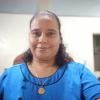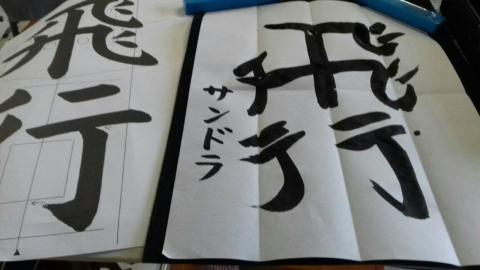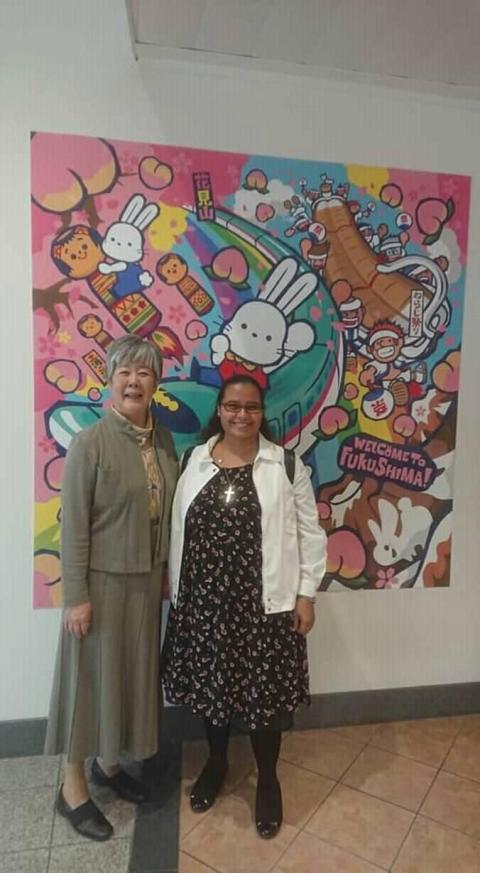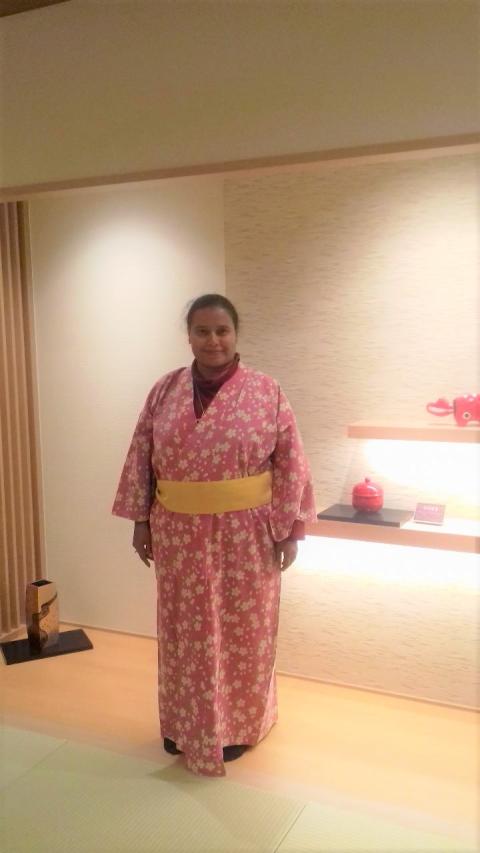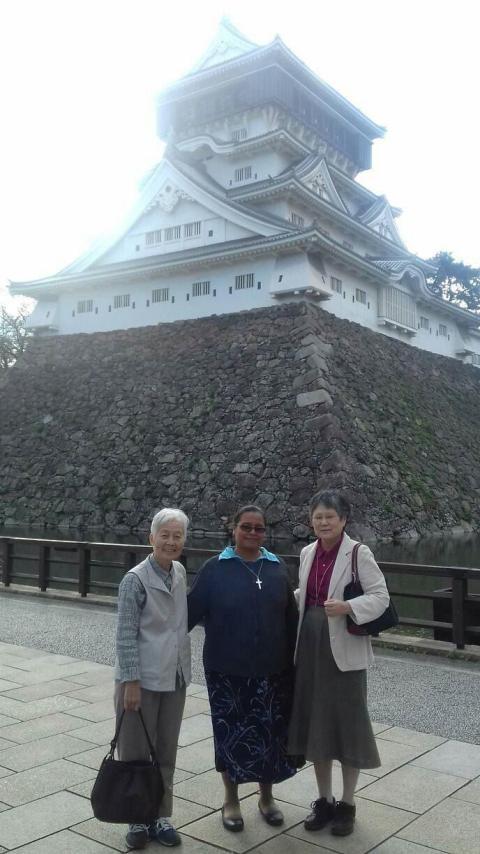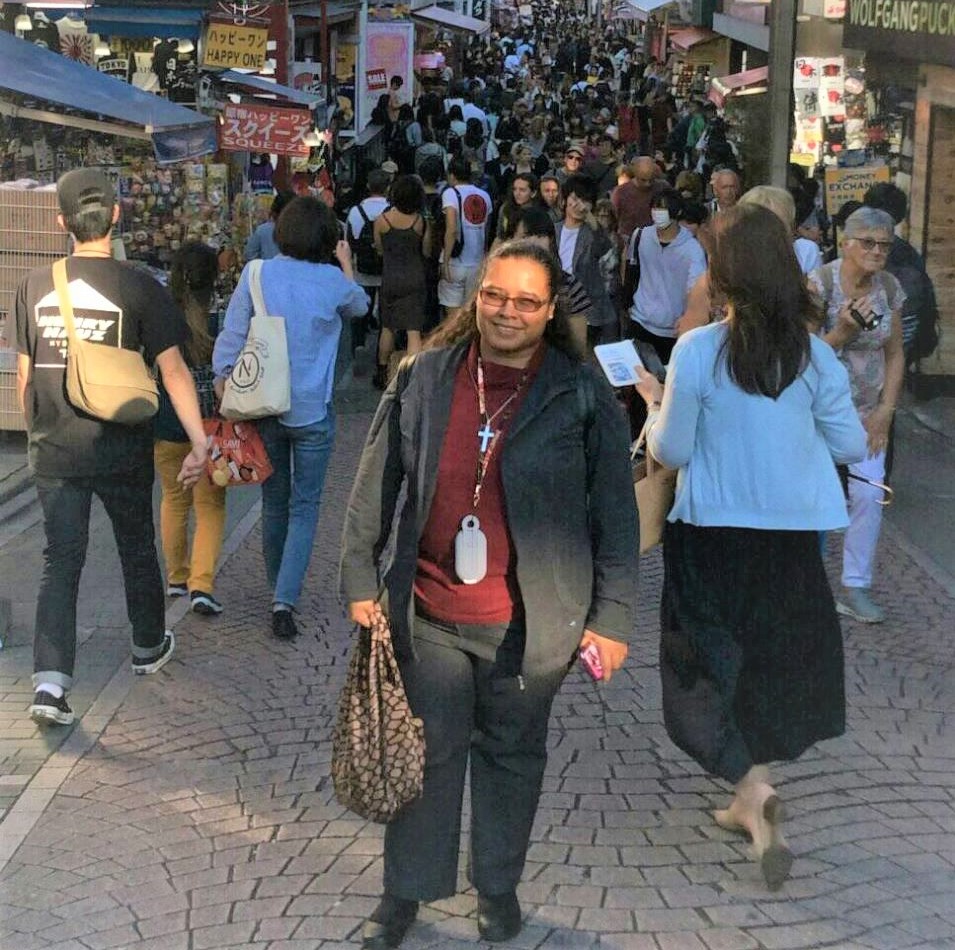
With the assistance of an electronic Japanese translator, Notre Dame Sr. Sandra Margarita Sierra Flores mixes in with the crowd while exploring a busy street in Shibuya, Japan (Courtesy of Sandra M. Sierra F.)
When I arrived at the airport in Narita, Japan, after two days of travel and with a suitcase lost on the way, I was amazed by the technology. One of the first things I noticed is that technology is part of everyday life here. I realized I was in a very different world when I got to the bathroom. I saw many buttons written in kanji, and since I can't read Japanese, I didn't know their function. As the month went by, I had the same experience with the washing machine, the shower and myriad appliances too sophisticated for me to understand without instructions.
I was disappointed because I thought I had learned to read hiragana and katakana, and I would be doing all right. I was also taking English-Japanese classes from Duolingo, but when I got here, I realized that I didn't understand anything, except for some very basic things like greetings and other short phrases that were not enough for a good conversation.
I must say that, even with that, the sisters were very understanding and kind and had infinite patience with me, especially with my poor English, which is not good at all.
In addition to overcoming my fear of using everyday items and language, I would like to add that, in terms of my mission, I encountered a completely new and distinct experience because their primary ministry is in schools and colleges, and I do not have much experience in such a formal level.
My first impression when visiting the school was that everything was very well-ordered and organized. The children are very gentle and kind and, of course, very smart, disciplined and intelligent. In fact, I think the children here learn things in school that I have never learned in my whole life.

Sr. Sandra Sierra with the fifth graders at Sakura No Seibo School, a Congregation of Notre Dame school in Japan (Courtesy of Sandra M. Sierra F.)
The sisters gave me the opportunity to attend school and participate in some classes, especially at the Sakura No Seibo school in Fukushima, where I could share with the little ones. The children, in their innocence and simplicity, welcomed me with joy, which was a very enriching experience. I also visited the Meiji Gakuen School in Tobata and St. Margaret's Kindergarten in Chofu.
Through this experience with the children, I understood what the Gospel says about being like children to enter the kingdom of heaven. These little ones even helped me to learn some Japanese phrases from their context.
When I arrived in Japan, one of the sisters lent me a very sophisticated device that translates conversations in real time, which was very useful, especially with the children, because it was fun for them to talk to me with this little device and listen to the translation of my answers.
I communicated in English with adults because I did not dare to speak to them through the electronic translator. Still, I did use it to share some of my vocational experience with a family in whose home, in Tokyo, I stayed for a couple of days. I did not know Japanese and speak little English, but God helped me communicate.
A good part of my experience in Japan was traveling throughout the country to get to know the communities of my Congregation of Notre Dame, but I also experienced some reality shocks, especially when visiting Hiroshima and Nagasaki. There, I could witness the consequences of the atomic bomb and the history of the first Christians in Japan.
I was able to experience God in a country where Christianity is a minority, yet there are strong testimonies of faith and hope, as I discovered on a visit to the Tsukuba community, which is the smallest of the communities in Japan, where I discovered the reality of many migrants living in poverty, which I had not seen before in Japan.
I also experienced God in community life in the land of the rising sun. The sisters in every community were very courteous and attentive, with a natural sense of kindness and hospitality. I was treated as one of their own in the community despite my inability to communicate. I was impressed by the frequency with which the sisters bowed and expressed gratitude to each other.
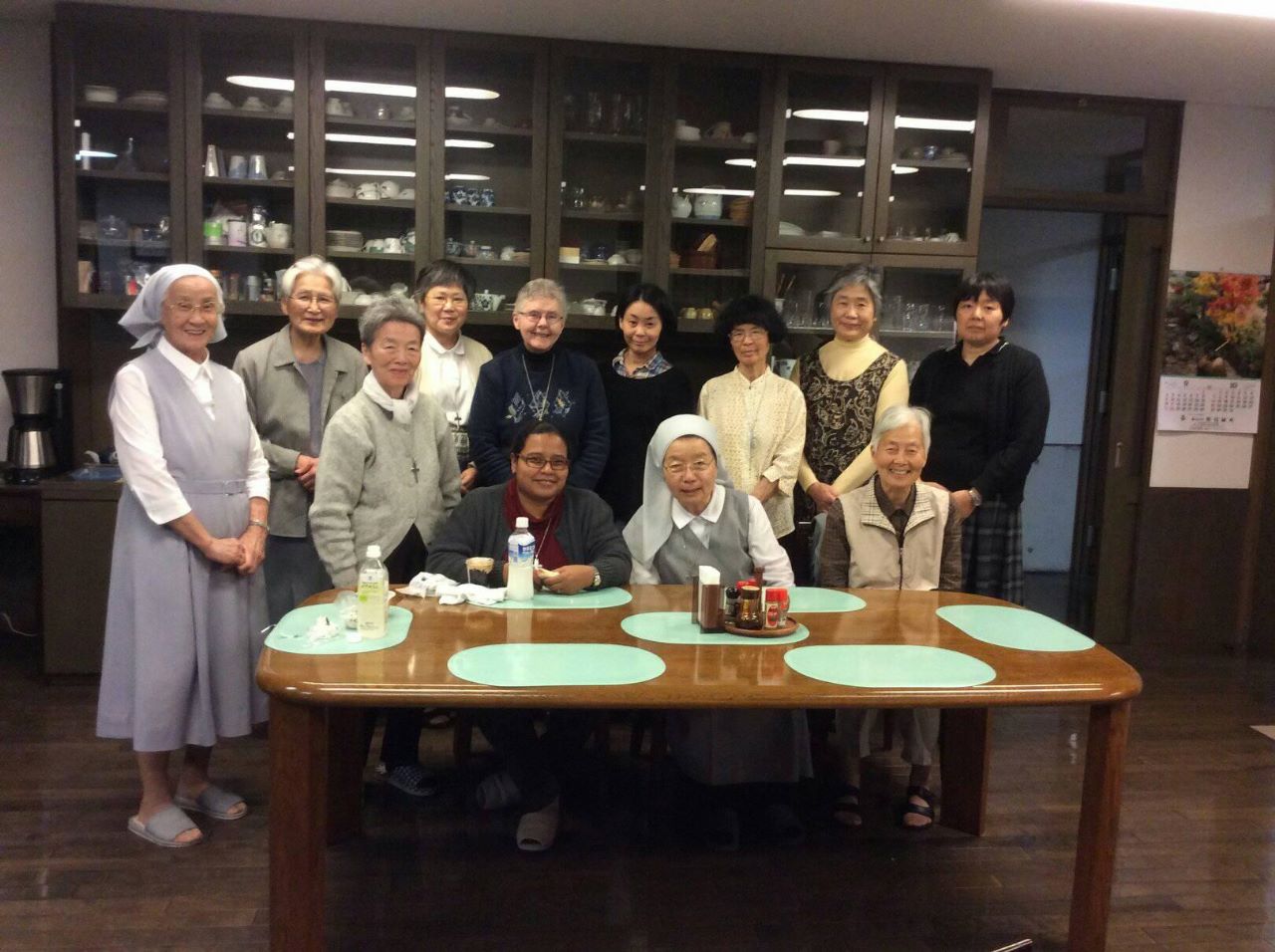
Sisters of the Congregation of Notre Dame in the community of Tobata, Kokura, Japan (Courtesy of Sandra M. Sierra F.)
I think this is due to the fact that, in terms of community life, the sense of harmony is crucial, and this is very clearly felt here. Even though the sisters may have differences among themselves, which is a normal part of the challenges of living together in a community, they have an admirable sense of hospitality, respect for the person, and attention to the needs of all in the community.
Having immersed myself in the history of Christianity in Japan and after a brief rereading of the history of the Congregation of Notre Dame in this country, I realize that having Japanese sisters in our religious community is a grace. It was difficult for any of us to leave everything behind when we embraced the consecrated life, but the obstacles here are essentially defined as going against the current, not only against family or friends but against culture itself.
It is not easy to be a Christian in a country where professing this faith is less common than in other countries. Even with all the problems they may face, and they know there are many, they do not lose their faith, sense of solidarity, gratitude and respect for others.
The sisters in Japan do not celebrate their birthday but their baptism because that date is for them like a new birth in the Christian life and faith. I do not know if I grasp the depth of this experience of faith, witness and simple dedication of the Japanese sisters. Perhaps it is because I have not had to go against the current because of my faith. Even so, the faith experience of the Japanese people has made a deep impression on me.
Getting to experience the mission of our congregation in this culture, which has always attracted me, has been challenging. This experience has been one of visitation, of openness to other worldviews and cultures, and, above all, an experience of unity in diversity.
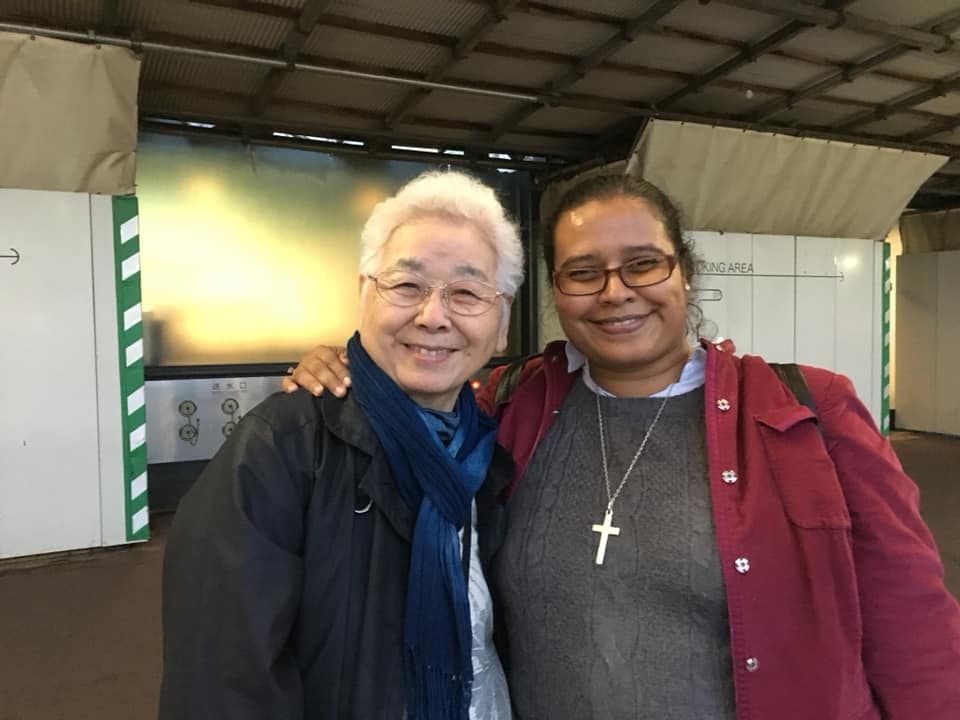
Sr. Sandra Sierra, right, with Sr. Shitsuko Endo, superior of the Congregation of Notre Dame in Japan (Courtesy of Sandra M. Sierra F.)
The wisdom I have gathered from this experience is like the mystery of Pentecost: receiving the grace of God, which allowed me to understand my sisters beyond words, beyond my schemes and my way of thinking.
Having immersed myself in the history of Christianity in Japan, I realize that having Japanese sisters in our religious community is a grace.
With this encounter, I have been growing in openness to what is different. I have become less afraid to take the plunge, to make mistakes and ask questions, and at the same time, to allow myself to be challenged by the reality of other sisters in other parts of the world — sisters who have also been called by God in the same spirit and charism.
This intercultural experience has also given me a new perspective on the early history of the congregation and St. Marguerite Bourgeoys in this part of the world. I now recognize the importance of the names and the places where she went in Canada, France and other countries.
Finally, being here in Japan has made me realize that a faith that does not risk is not true faith. Faith demands we go beyond our mental framework — going even against the grain — when we do not understand the situation or the language. God will always help us if we are willing to embrace the experience he wants to give us.
This article was originally published in Spanish.
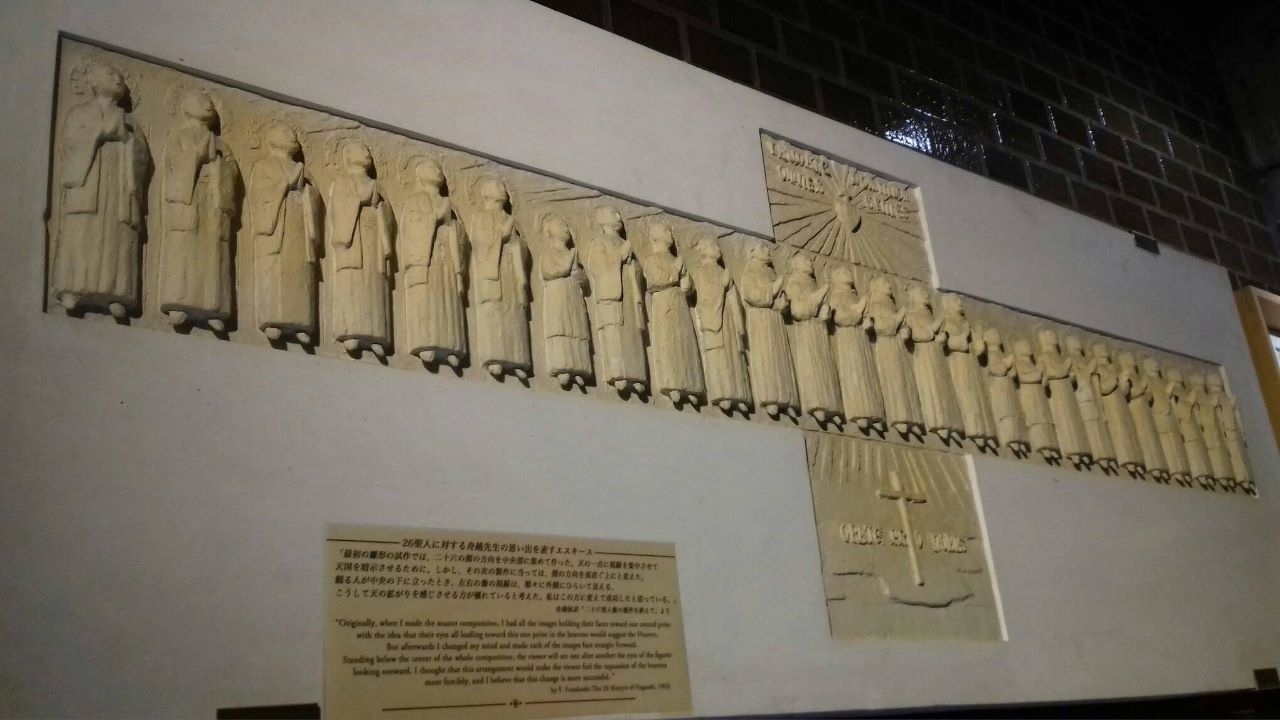
The Christian Martyrs Monument on Mount Nishizaka (Nagasaki), built in 1962, commemorates the centennial of the canonization of the 26 people who lost their lives in Japan in 1597, executed for professing the Christian faith and spreading it during the time when Toyotomi Hideyoshi, as a leader, sought to promote Buddhism as the predominant religion (Courtesy of Sandra M. Sierra F.).
